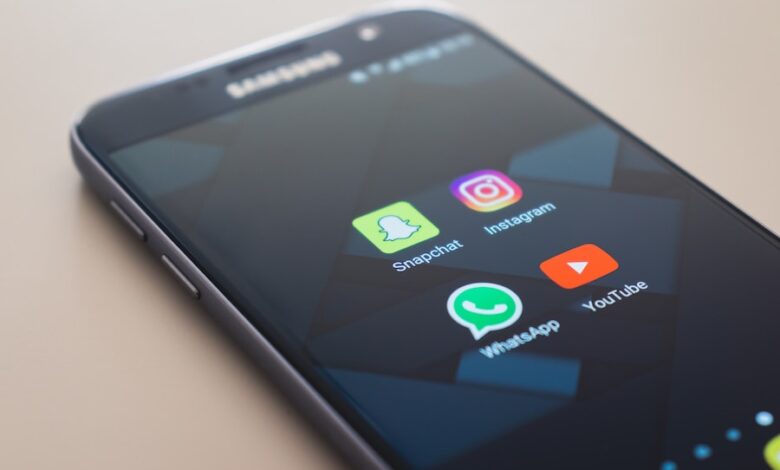Why Deleting Your Threads Account Could Be the Best Decision for Your Instagram Experience

Introduction
Social media has become an integral part of our daily lives, allowing us to connect with others share our thoughts and experiences and stay updated on current events. However, the impact of social media on mental health has become a growing concern. Research has shown that excessive use of social media can have negative effects on our mental well-being, including increased feelings of loneliness, depression and anxiety. In this article, we will explore the various ways in which social media can impact mental health and discuss the benefits of deleting your Threads account.
Understanding the Impact of Social Media on Mental Health
Social media platforms have revolutionized the way we communicate and interact with others. However, they also have the potential to negatively impact our mental health. One way in which social media affects mental health is through the constant comparison to others. People often present an idealized version of themselves on social media, showcasing their accomplishments, travels, and happy moments. This can lead to feelings of inadequacy and low self-esteem when we compare ourselves to these curated online personas.
Another way in which social media can impact mental health is through the addictive nature of these platforms. The constant need for validation and the fear of missing out (FOMO) can lead to excessive use of social media, which can have detrimental effects on our mental well-being. Spending excessive amounts of time on social media can lead to feelings of isolation, as we may neglect real-life relationships and activities. Additionally, the constant exposure to negative news and online harassment can contribute to feelings of anxiety and depression.
The Negative Effects of Social Media Addiction
Social media addiction is a growing concern in today’s society. It is characterized by a compulsive need to use social media, often at the expense of other important aspects of life. The negative effects of social media addiction on mental health are numerous. Excessive use of social media can lead to feelings of loneliness and isolation, as individuals may prioritize virtual interactions over real-life relationships. This can contribute to a decline in overall well-being and an increased risk of developing mental health disorders such as depression and anxiety.
Furthermore, social media addiction can have a detrimental impact on sleep patterns. The blue light emitted by electronic devices can disrupt the production of melatonin, a hormone that regulates sleep. This can lead to difficulties falling asleep and staying asleep, resulting in sleep deprivation and its associated negative effects on mental health. Additionally, the constant exposure to stimulating content on social media can make it difficult to wind down before bed, further exacerbating sleep issues.
The Relationship Between Social Media and Self-Esteem
Social media has a profound impact on self-esteem. The constant comparison to others and the pressure to present an idealized version of oneself can lead to feelings of inadequacy and low self-worth. People often showcase their best moments on social media, creating a distorted perception of reality. This can make individuals feel as though they are not living up to societal expectations, leading to a decline in self-esteem.
Moreover, social media platforms are often filled with images and messages that promote unrealistic beauty standards. This can contribute to body dissatisfaction and the development of eating disorders. Research has shown that exposure to idealized images on social media can lead to negative body image and a desire to attain an unattainable physical appearance. This constant comparison to others can have a detrimental impact on self-esteem and overall mental well-being.
The Psychological Benefits of Deleting Your Threads Account
Deleting your Threads account can have numerous psychological benefits. By removing yourself from the constant comparison and validation-seeking that social media often promotes, you can experience a sense of liberation and freedom. Deleting your Threads account allows you to focus on your own personal growth and well-being, rather than constantly seeking external validation.
Additionally, deleting your Threads account can help to reduce feelings of anxiety and depression. Research has shown that excessive use of social media is associated with higher levels of anxiety and depression. By disconnecting from social media, you can create a healthier and more balanced relationship with technology, allowing yourself to engage in activities that promote mental well-being.
How Deleting Your Threads Account Can Improve Your Productivity
Social media can be a major distraction and time-waster. The constant notifications and the urge to check for updates can significantly impact productivity. Deleting your Threads account can help to improve your productivity by eliminating these distractions. Without the constant need to check social media, you can focus on tasks at hand and allocate your time more efficiently.
Moreover, social media can contribute to a phenomenon known as “context switching,” where individuals constantly switch between tasks, resulting in decreased productivity. By disconnecting from social media, you can reduce the temptation to switch between tasks and maintain a more focused and productive mindset.
The Importance of Disconnecting from Social Media
Disconnecting from social media is crucial for maintaining good mental health. Constant exposure to the curated lives of others can lead to feelings of inadequacy and low self-esteem. By disconnecting from social media, you can create a healthier relationship with technology and focus on your own personal growth and well-being.
Furthermore, disconnecting from social media allows you to be more present in the moment and engage in meaningful real-life interactions. Social media often promotes a superficial form of connection, where individuals may prioritize virtual interactions over real-life relationships. By disconnecting from social media, you can foster deeper and more meaningful connections with others, leading to increased feelings of happiness and fulfillment.
The Role of Social Media in Fostering FOMO (Fear of Missing Out)
FOMO, or the fear of missing out, is a common phenomenon that is often fostered by social media. The constant exposure to the highlight reels of others’ lives can lead to feelings of inadequacy and the fear of missing out on exciting experiences. Social media platforms often showcase the best moments of people’s lives, creating a distorted perception of reality.
By disconnecting from social media, you can break free from the cycle of comparison and FOMO. Instead of constantly seeking validation and comparing yourself to others, you can focus on your own personal growth and well-being. This can lead to increased feelings of contentment and a greater sense of self-worth.
The Positive Effects of Limiting Your Social Media Use
Limiting your social media use can have numerous positive effects on mental health. By setting boundaries and allocating specific times for social media use, you can regain control over your time and reduce the negative impact of excessive use. This can lead to increased feelings of self-control and a greater sense of balance in your life.
Moreover, limiting your social media use can help to improve sleep patterns. By reducing exposure to the stimulating content on social media before bed, you can create a more conducive environment for sleep. This can lead to improved sleep quality and overall mental well-being.
The Connection Between Social Media and Cyberbullying
Cyberbullying is a prevalent issue in today’s digital age, and social media platforms often serve as a breeding ground for this harmful behavior. Cyberbullying refers to the use of electronic communication to harass, intimidate, or threaten others. The anonymity and distance provided by social media can embolden individuals to engage in cyberbullying, as they may feel less accountable for their actions.
By deleting your Threads account, you can remove yourself from the toxic environment that often fosters cyberbullying. This can help to protect your mental well-being and create a safer online space for yourself.
How Deleting Your Threads Account Can Help You Build Healthier Relationships
Social media can have a detrimental impact on relationships. The constant comparison to others and the pressure to present an idealized version of oneself can create a superficial form of connection. By deleting your Threads account, you can foster healthier relationships by focusing on real-life interactions and genuine connections.
Moreover, social media can often lead to misunderstandings and conflicts. The lack of nonverbal cues and the ability to edit and delete messages can contribute to miscommunication and the escalation of conflicts. By disconnecting from social media, you can reduce the likelihood of these misunderstandings and build healthier and more authentic relationships.
Conclusion
In conclusion, social media has a profound impact on mental health. The constant comparison to others, the addictive nature of these platforms, and the pressure to present an idealized version of oneself can lead to feelings of inadequacy, low self-esteem, and increased risk of mental health disorders. Deleting your Threads account can have numerous psychological benefits, including increased feelings of liberation, reduced anxiety and depression, improved productivity, and the ability to build healthier relationships. By disconnecting from social media, you can prioritize your own well-being and create a healthier and more balanced relationship with technology.





